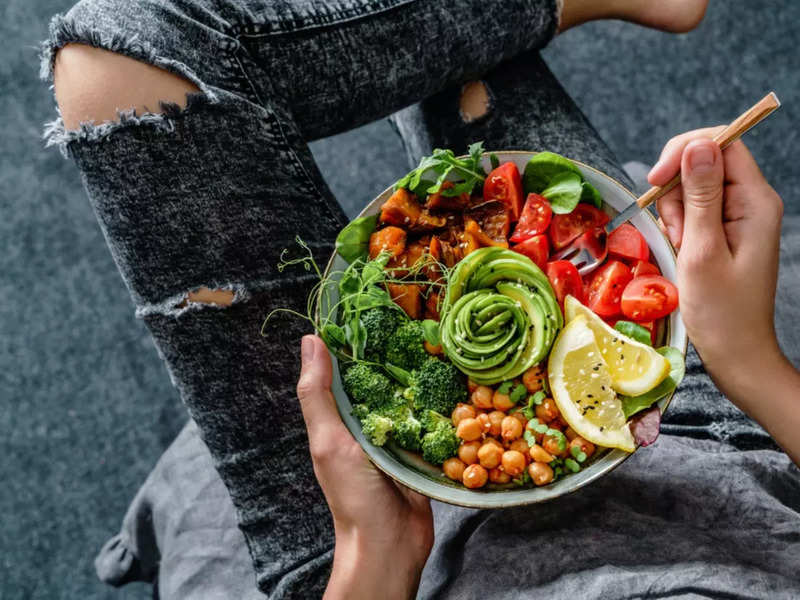From timesofindia.indiatimes.com
Going green is the newest diet trend. Not only are green diets considered to be environmentally friendly, but they are also backed by a lot of experts, for a lot of health benefits. There have been a lot of celebs who have propagated the message too.
However, going green with your food choices isn't as easy as just going off of meat and dairy. For one, it's important to understand that not only is it a conscious choice, there's also a big decision to be made whether what you want to opt for is a plant-based diet or go completely vegan. Since there are minor differences between the two, some people confusingly interchange and use the terms 'plant-based' and 'vegan' to describe their preferences.
Both of these diets have been talked about in recent years and said to carry exceptional good-health promoting benefits. They are also green and do not involve the consumption of non-vegetarian sources. But, what's the big difference between the two?
If you plan to go green or want to eliminate animal-based products from your life, which diet should you go for and why?

Plant-based vs Vegan diet: How do they compare? What are the differences?
To simplify, the history of plant-based nutrition is something that originated with veganism in itself. Veganism may be defined as a means of living wherein people avoid animal-sourced food and any products for ethical reasons, and is more of a lifestyle. In comparison to this, a plant-based diet refers to the eating choices and foods you eat, and not the lifestyle in its entirety.
Apart from this, there are also a few notable differences between the two dietary (or lifestyle) choices.
Referring to a plant-based diet typically indicates that a person has a diet or have foods that are solely derived from plants and plant products. Some also use the term to signify their choice of opting for foods that are whole foods, mostly raw or undergo minimal procession. Therefore, a plant-based diet would mean that a person would cut out staples like processed oils and grains.
In comparison to this, being vegan means that a person has decided to opt for a lifestyle change in its entirety. Going vegan means a way of living that fully avoids consumption, use or exploitation of animals and their meat in the everyday life. Vegans, additionally, also tend to avoid buying or using products that would be tested on animals, and hence, extends to personal care, clothing choices as well. This can also include medicines and vaccines sometimes.
The difference here lies in the extent to which a person is willing to make the choice- while veganism is a complete lifestyle change, a plant-based diet restricts itself to the food. However, as with the foods in themselves, there can be foods that could be excluded from a plant-based diet (such as processed products) but included in the vegan diet (since the only exception is that the food should not be sourced through animals).
In both of the diets, certain food groups, such as legumes and pulses (in their whole form), organic fruits and vegetables and whole grains are allowed. Processed oils and other by-products, meat, dairy can be exceptions.
Can you follow a plant-based and vegan diet together?
As stated above, it can be possible to be both plant-based and vegan in your choice, both at the same time. More so, some people who follow a plant-based diet or a vegan diet, in the beginning, switch out or extend their lifestyle to accommodate the needs of the other diet to extract more health benefits or be more ethical or conscious in their approach. As different as they are in themselves, they do share some similarities.
As stated above, it can be possible to be both plant-based and vegan in your choice, both at the same time. More so, some people who follow a plant-based diet or a vegan diet, in the beginning, switch out or extend their lifestyle to accommodate the needs of the other diet to extract more health benefits or be more ethical or conscious in their approach. As different as they are in themselves, they do share some similarities.
Are there disadvantages?
With all the benefits and advantages which favour planet and ethical living, following a plant-based diet or being vegan has been often associated with a higher risk of certain deficiencies, can be a little less economical and difficult to source in the beginning. Not to forget, a choice that can take time to settle in. Therefore, if you are persuaded to make a shift, do weigh your pros and cons well before you adapt to an altered eating pattern or lifestyle.
No comments:
Post a Comment